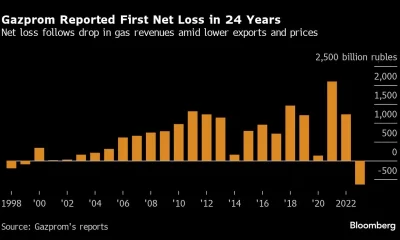Economic Issues
The Quest for Financial Supremacy: The US Dollar vs The Chinese Yuan and the Feasibility of Establishing a Global Bank -By Ibrahim Tiamiyu
Financial stability remains a global issue, and It remains to be seen how the ongoing competition for financial supremacy among the world’s top countries will unfold.

An item is just a mere item until value is attached to it. For example, paper has less value (just for writing or what have you) compared to when it is used in designing a currency. In that light, a currency (for example, the Nigerian Naira Note) is also a paper but has high value because it is widely recognized and accepted as legal tender (as money).
To add more context, consider the recent policy by the Nigerian government via the Central Bank of Nigeria to redesign the Naira Note, which brought about a discrepancy between the New Naira Notes and the Old Naira Notes. At some point, the Old Naira Notes were ridiculed as they were not recognized or approved as legal tender (as money).
Therefore, money is money because of the value attached to it. This applies to all other valuable items like gold, oil & gas, relationships, and so on.
Based on the aforementioned, the United States Dollar (USD) is the most valuable currency in the world today because the majority of international trade transactions and financial activities are carried out using the US dollar. This implies that the most generally accepted medium of exchange or transaction (including inter-country and international issuance of loans) is mostly executed in the USD, which accrues more value to the USD than any other currency in the world.
Now, in the 21st century, it is not out of place to say that the tussle between countries to become the superpower is far beyond going into physical war with each other. One of the crucial means of accumulating power for a country is by having significant control in the global financial and international trade market.
It is not new that the top three powerful nations are the USA, Russia, and China. In recent years, China has been arguably (strategically) striving to take charge of the world power. This goal is the driving force behind China’s push to make the Chinese currency (Yuan) the most valuable and widely accepted medium of exchange and transaction in place of the USD.
One among others and the most recent attempt by China to achieve this goal of having significant control in the world economy is by strategically forming alliances and championing economic policies that will enable the Chinese Yuan to replace the USD as the most traded currency in many countries and the world at large. For countries that are not buying into the utilization of the Yuan as the main medium of exchange between them and China, China devices a strategy of granting these countries the freedom of trading and transacting in their own national currency. For example, if Nigeria imports clothing materials or telephones from China, Nigeria is allowed to pay in Naira. This way, the circulation cum dominance of the USD will begin to shrink.
Some economists argue in favor of the De-Dollarization of the Global Economy, but will the ‘Yuanization’ of the World Economy bring about financial stability or will it bring us back to the point of having one country’s currency dominating the world economy? Obviously, the latter will be the case, and this makes us far from achieving global/shared prosperity. Once upon a time, the USD displaced the United Kingdom’s currency (Pounds Sterling/ GBP) as well.
Some economists propose the creation of a single global currency, which would eradicate the use of national currencies, and thereby establishing a Global Bank (Central Bank of the World) that will steer the affairs of the global economy.
Unfortunately, the first issue that might arise is reaching an unanimous decision on the location of the Global Bank and the administrative composition/scope of control in general. Also, some Least Developed Countries (LDCs) and Developing Countries are not at that level of development yet. For instance, Developed countries are focused on financial stability, while some LDCs and Developing countries are at the stage of finding solutions to development problems like unemployment and they might not be ready to buy into the idea of a global currency and bank.
Financial stability remains a global issue, and It remains to be seen how the ongoing competition for financial supremacy among the world’s top countries will unfold.
Disclaimer:
This is an attempt to demystify a current global economic issue to educate the interested public and the economics community.
Ibrahim B. Tiamiyu
A budding International Economics & Finance Analyst.




















